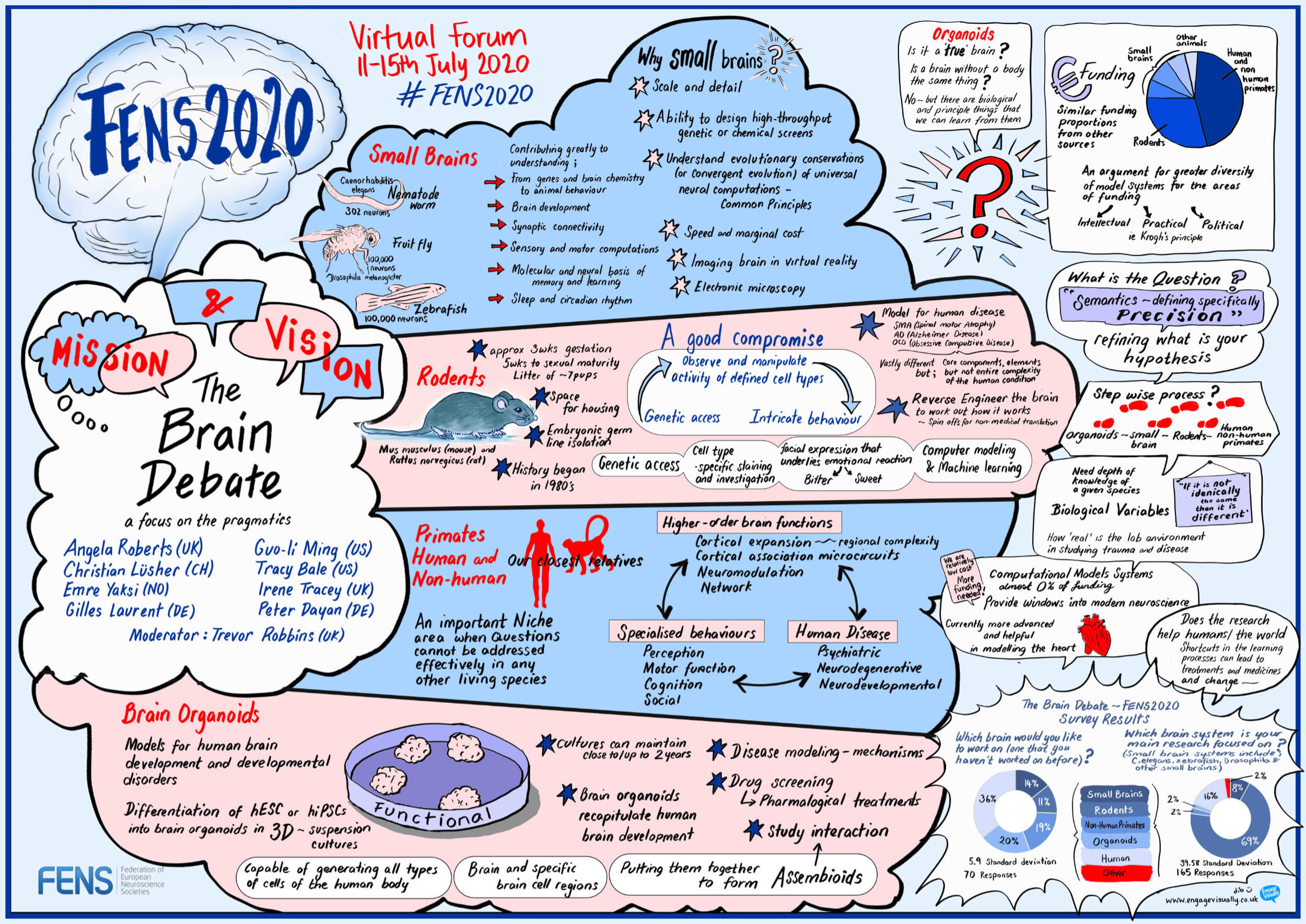FENS facilitates the dissemination of scientific information through a series of online resources, available to all.
Browse the directory below and access a vast array of online materials, including position papers, training and career development materials, outreach and advocacy resources.
| Title | |
|---|---|
| New Neurons in the adult Brain – Corpus Curiosum (Series II) |

|
| Online workshop: Running a Brain Awareness Week event in 2021 |

|
| Periphery-CNS miscommunication in neurodegenerative disorders: focus on brain barriers pathology |

|
| Running a Brain Awareness Week event | View/Download |
| Running a Brain Awareness Week event in 2022 | View/Download |
| The Ascent: A Brief History of the Brain |

|
| The Brain Debate “Which brains are we studying?” |

|
| The collection of human brain development in the Research Institute of Human Morphology, Moscow | Open URL |
| The human brain: A philosophical and scientific perspective – Corpus Curiosum (Series IV) |

|
| The Prospects of Brain Research within Horizon 2020: Responding efficiently to Europe’s societal needs | View/Download |
| The wonder that is our brain: how and why we study it |

|
| Toward Novel Therapies in Psychiatry: Zooming into Brain-Periphery, Dysfunction, and Crosstalk |
Members only |
| Unboxing the Microbiota-Gut-Brain Axis – Corpus Curiosum (Series III) |

|
| Webinar: Running a Brain Awareness Week event in 2022 |

|
| What can we learn from tiny brains? Big lessons from organoid culture – Corpus Curiosum (Series IV) |

|
| What is the Brain? |

|
| Why fake news is so fascinating to the brain |

|
| Why is fake news so fascinating to the brain? | Open URL |
